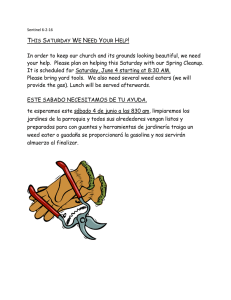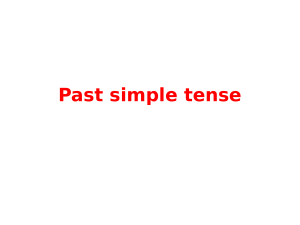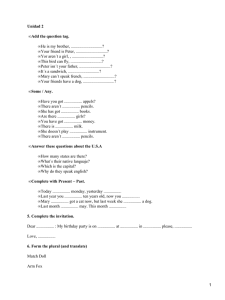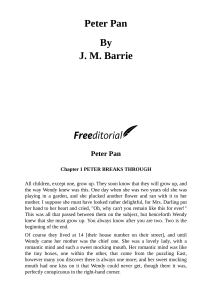Selectividad: Inglés
Anuncio
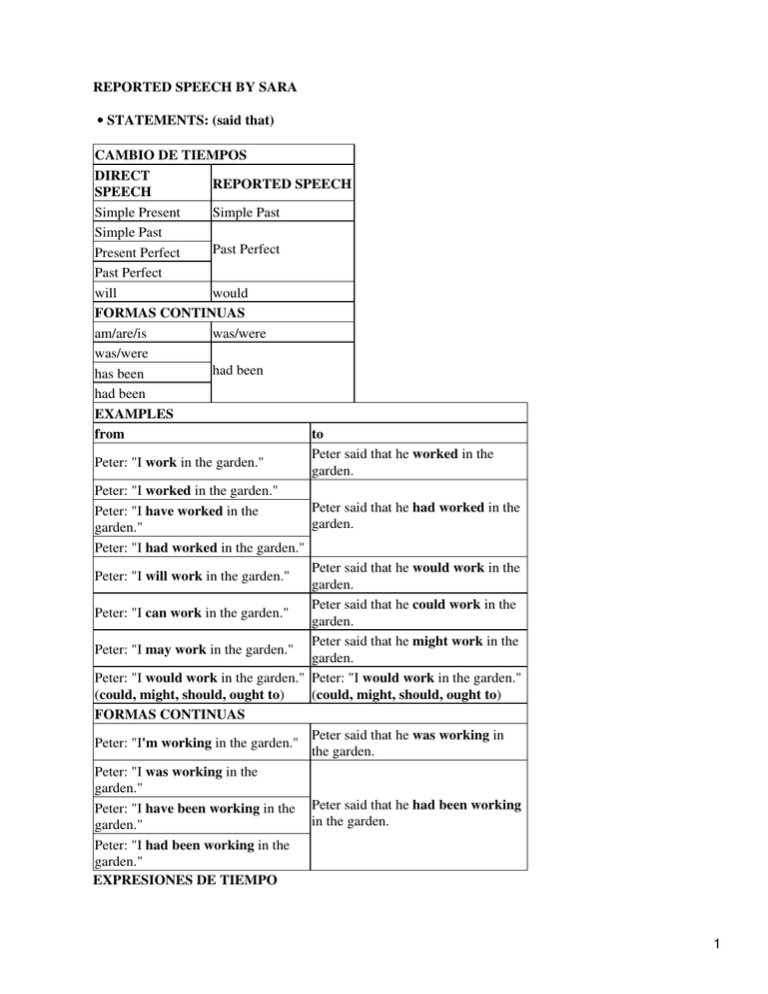
REPORTED SPEECH BY SARA • STATEMENTS: (said that) CAMBIO DE TIEMPOS DIRECT REPORTED SPEECH SPEECH Simple Present Simple Past Simple Past Past Perfect Present Perfect Past Perfect will would FORMAS CONTINUAS am/are/is was/were was/were had been has been had been EXAMPLES from to Peter said that he worked in the Peter: "I work in the garden." garden. Peter: "I worked in the garden." Peter said that he had worked in the Peter: "I have worked in the garden. garden." Peter: "I had worked in the garden." Peter said that he would work in the Peter: "I will work in the garden." garden. Peter said that he could work in the Peter: "I can work in the garden." garden. Peter said that he might work in the Peter: "I may work in the garden." garden. Peter: "I would work in the garden." Peter: "I would work in the garden." (could, might, should, ought to) (could, might, should, ought to) FORMAS CONTINUAS Peter said that he was working in Peter: "I'm working in the garden." the garden. Peter: "I was working in the garden." Peter: "I have been working in the Peter said that he had been working in the garden. garden." Peter: "I had been working in the garden." EXPRESIONES DE TIEMPO 1 this (evening) today/this day these (days) now (a week) ago that (evening) that day those (days) then (a week) before the weekend before / the previous last weekend here next (week) tomorrow weekend there the following (week) the next/following day 2- QUESTIONS (asked me/him…) 1-Question SIN question words (yes/no questions): Peter: "Do you play football?" - Peter asked me whether (if) I played football. Question CON question words: Peter: "When do you play football?" - Peter asked me when I played football 3-COMMANDS (told me/her…) La forma es: tell +(not) to + infinitive. Affirmative commands Father: "Do your homework." Father told me to do my homework. Negative commands Teacher. "Don't talk to your neighbour." The teacher told me not to talk to my neighbour. • Las Reglas básicas en reported speech se resumen: • Los tiempos cambian de presente a pasado y de pasado a un pasado anterior • Las expresiones temporales cambian • Los pronombres (posesivos, personales…) cambian REPORTED SPEECH BY SARA 2
